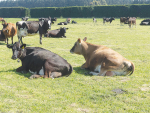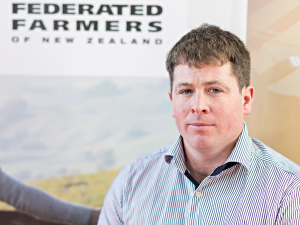Animal welfare remains the biggest concern as the Rural Support Trust activates Covid contingency plans for the farming sector.
Trust chair Neil Bateup told Rural News while there have been just one or two Covid cases on farms so far, they were "preparing for the worst and hoping for the best".
He says a lot of planning has been done in each region with the organisation liaising with industry bodies, Ministry of Social Development and district health boards.
"If any farming business gets into strife, we will look at how best to support it," he says. "A Covid outbreak can cause labour issues on farm and that's where looking after livestock - cattle, sheep, poultry and pigs - may become an animal welfare issue."
Many farm businesses have drawn up their own contingency plans around securing extra staff and making arrangements with neighbours to help each other out.
Bateup says it's hard to say how far and wide Covid will spread in the farming community.
"As it spreads more around the country, [it's] likely more farms will be impacted. But we are prepared. Hopefully we don't have a lot of work to do."
Farming businesses impacted by Covid can contact their regional RST office for support.
Bateup also expressed gratitude to the Government for allocating an additional $400,000 for the rural sector to prepare for Omicron.
"We are really happy that our work has been recognised.
"The money will ensure Rural Support Trust is reimbursed for any work it does around Covid."
Agriculture Minister Damien O'Connor says the funding will bolster the resources of Rural Support Trusts and other organisations, including those supporting Māori agribusinesses, to help them respond to cases.
"This funding will help ensure there's someone that farmers and growers can speak to and provide guidance should they or their staff be dealing with Omicron.
"The Rural Support Trusts are well woven into rural communities to provide wrap-around support services.
"The sector has to date been resilient throughout the pandemic. The hard work of farmers and growers, along with those involved in keeping supply chains open and exports flowing, is leading New Zealand's trade-led recovery from Covid," O'Connor says.
O'Connor is urging farmers to have own contingency plans in place.
"Contingency planning by farmers, growers and lifestyle block owners will minimise the risk of further Covid-19 related disruptions, which can occur anywhere along the supply chain," he says.
"It's vital all food and fibre producers have a plan. It makes it easier for other people to step in and help run your farm, or feed your livestock, at short notice."
There are several free checklists available which have been developed by industry and Ministry for Primary Industries.
Rural Support Trust
There are 14 Trusts across the country with links into health, social development and all industry partners including Federated Farmers.
Case managers will work alongside farmer and growers who have issues and help them plan a way forward.
Some farmers may chill in preparation, whilst others will call once they or their staff are managing Omicron on their farm or in their orchard. Every situation will be different - number of staff, number infected, or the type of operation for instance.
A key part of this is to be putting people in touch with other support agencies, like Work and Income, should they need it.











